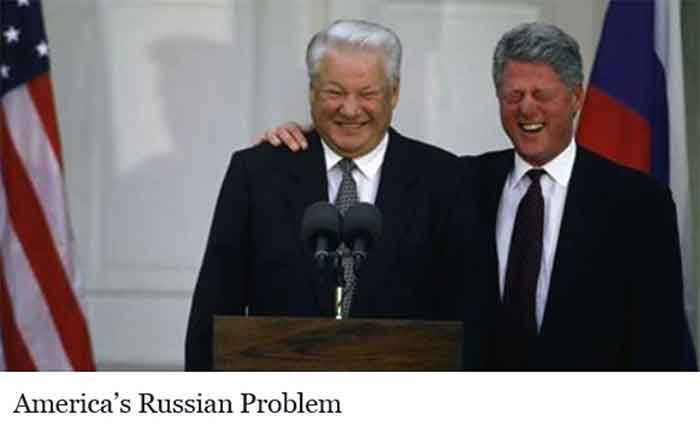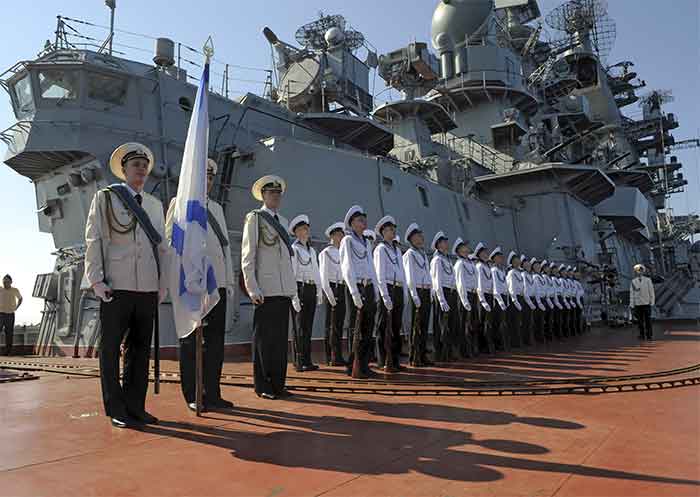The once-promising era of Western and Russian cooperation has nearly vanished. The fragile remaining remnants leave lingering questions about the future of global stability.

In November 2023, Russia’s withdrawal from the 1990 Conventional Armed Forces in Europe (CFE) treaty marked another milestone in the unraveling of agreements between Moscow and the West. The CFE, designed to limit weapons in Europe, symbolizes the steady decline of Western-Russian cooperation. Citing NATO expansion, Russia previously suspended CFE operations in 2007, and in 2011 the U.S. and other NATO allies halted information sharing with Russia on certain treaty provisions. After Russia’s November decision, the U.S. and NATO allies suspended participation in the CFE.
Optimism for global cooperation initially soared during and immediately after the 1991 Soviet collapse. In the 1990s, the U.S. and Russia established the START Missile Treaty to reduce their nuclear arsenals, created the NATO Partnership for Peace (PfP) and the NATO–Russia Permanent Joint Council (NRPJC) to facilitate joint peacekeeping and stability in Europe, and Russia joined the G-8 to enhance economic coordination.
Collaboration also grew in counter-narcotics and counterterrorism initiatives, civil emergency response, space exploration, biomedical science, and maritime search and rescue operations. The Shared Beringian Heritage Program was created to protect regional ecosystems and indigenous communities between Russia’s Far East and Alaska, and the Arctic Council and Arctic Environmental Protection Strategy came to promote similar ideals between Russia and NATO-member Arctic countries.
But by the end of the 1990s, conflicting geopolitical interests in the former Yugoslavia, coupled with NATO enlargement into Central and Eastern Europe, caused significant strain on Russia-Western relations. Washington’s decision to leave the Anti-Ballistic Missile Treaty in 2002 in the aftermath of 9/11 also set a precedent, and though the SORT Treaty was signed that year to reduce strategic nuclear weapons deployed abroad, it lacked important specifics, undermining enforcement mechanisms.
Additional NATO enlargement in 2004, a 2007 U.S. proposal for a missile defense shield in Europe (that Russia argued violated parts of the START I Treaty), and Russia’s 2008 invasion of Georgia further discouraged cooperation. The U.S. and Russia managed to “reset” relations in 2009, resulting in suggestions for a scaled back version of the missile shield and creation of the U.S.-Russia Presidential Bilateral Commission. And, in 2010, the New START Treaty helped prolong nuclear weapons limits, while the Joint Plan of Action reached in 2013 showcased Russian and Western coordination over Iran’s nuclear program.
Nonetheless, Western relations with Russia entered a downward spiral soon after. Following the 2014 Maidan Revolution in Ukraine and the beginning of Russia’s intervention in the country, Russia was immediately sanctioned and removed from the G-8. NATO and the EU also suspended or stopped cooperation and consultation with Moscow.
The 2018 U.S. withdrawal from the Iran nuclear deal highlighted the ongoing breakdown in relations. Citing Russian violations, the U.S. then withdrew from the Intermediate-Range Nuclear Forces Treaty (INF) in 2019 and Treaty on Open Skies in 2020 (with Russia leaving in 2021). Since Russia’s invasion of Ukraine in 2022, cooperation between Moscow and the West deteriorated further. Sanctions against Russia were expanded significantly, it suspended participation in the New START in February 2023, with the CFE becoming the most recent link to be severed.
Amid this collapse, a few crucial areas of cooperation persist. The International Space Station (ISS) consists of one part manufactured and operated by Russia and another by the US and other Western countries. Launched in 1998 and designed to be interdependent, the ISS has faced uncertainty since the beginning of the war in Ukraine. In July 2022, Dmitry Rogozin, then-head of Roscosmos, Russia’s space agency, declared an end to ISS cooperation in 2024, comments reiterated by his replacement, Yuri Borisov, just days later.
But NASA quickly declared that Russia would continue the partnership, and Russian officials stated in April 2023 that the country’s adherence to the ISS would last until 2028 (the U.S. has confirmed it will continue until the ISS is decommissioned in 2030). Roscosmos and NASA also remained committed to seat-swapping missions to the ISS, with a U.S. astronaut flying aboard a Russian Soyuz rocket in September 2022 and a Russian cosmonaut flying aboard a Crew Dragon mission to the ISS weeks later.
Energy is also a domain where there is ongoing Western and Russian cooperation. European countries are continuing to buy Russian oil and natural gas, even if some of it is delivered through intermediaries like India. Rosatom, Russia’s state-run nuclear energy agency, also enjoys significant relationships with several EU and NATO members. At ITER, an international nuclear energy research project headquartered in France, Russia has made several deliveries since the start of the war in Ukraine, most recently in February 2023.
And though the U.S. has successfully weaned off Russian fossil fuels, it continues to pay billions of dollars annually to Russia for nuclear fuel and other nuclear energy assistance—in 2022, Russia was the top supplier of enriched uranium to the U.S. Since the beginning of the war in Ukraine, the Senate has attempted to introduce bills to ban Russian uranium, while a recent House bill to do so passed in December 2023. It remains to be seen if it will be passed in the Senate, and it will take years to implement.
Significant non-energy-related trade between Western countries and Russia also endures in the face of sanctions. And while many Western companies left Russia after the launch of the war in Ukraine, many did not. Others, like Volkswagen and Renault, sold their assets in Russia for a nominal fee, but with buyback clauses that could allow them to return.
Despite tensions relating largely to the conflict in Ukraine, Russia has continued to play an active role in the Organization for Security and Cooperation in Europe (OSCE). Recent events suggest the hardline diplomatic approach to Russia is faltering. Russian foreign minister Sergey Lavrov was forbidden from visiting any EU country after sanctions were imposed on him in 2022 and was denied access to Balkan states’ airspace to travel to Serbia that year. But in September 2023, Lavrov’s plane was permitted to cross Greek airspace and land in North Macedonia for an OSCE meeting. The recent elections of the new Dutch and Slovak governments further suggest a diminishing political appetite among some Western countries for taking an inflexible stance against Russia.
The U.S. and Russia have also attempted to maintain open lines of communication to avoid potentially catastrophic military accidents. The Moscow-Washington hotline, established in 1963 after the Cuban Missile Crisis, was in 2015 complemented by a rudimentary channel of communication opened to avoid military conflict in Syria once Russian forces entered the country that year. And in March 2022, a deconfliction hotline regarding Ukraine was created that has so far been used once in November 2022.
Informal talks between Russia and the U.S. have also come to light. In July 2023, it was revealed that former senior U.S. national security officials had held secret talks in New York with Russian officials, including Sergei Lavrov, to negotiate an end to the war in Ukraine. These informal diplomatic discussions have allegedly been taking place at least twice a month, often online. U.S. officials denied they had ever taken place.
And despite the heightened military activity in the Arctic spurred by the conflict in Ukraine, there is optimism that nations recognize the vital significance of environmental cooperation in the region. This sentiment was underscored when Russia hosted the 13th Arctic Council meeting in the town of Salekhard in May 2023.
Current levels of cooperation are a far cry from the 1990s, where in addition to greater collaboration and dialogue in various areas, 80 percent of the world’s strategic nuclear weapons were dismantled in a decade. While many avenues of collaboration have since crumbled, the ISS continues to orbit, the nuclear energy industry maintains pockets of cooperation, and strained communication lines remain open.
Yet Russia’s actions, most notably its invasion of Ukraine, coupled with Moscow’s distrust toward the West, cast a shadow over a more optimistic outlook. Existing nuclear agreements are languishing or ignored, and if the New START treaty expires in 2026, it could lead to a new nuclear arms race and threaten other weapons treaties. Russia’s growing relationships with “rogue states” like Iran and North Korea also amplify its ability to destabilize the Western-led global order, while Russia’s burgeoning relationship with China has offset Western isolation.
Since the Soviet collapse, Washington and the wider Western world have struggled to balance acknowledging Russia’s influence, holding it accountable, and safeguarding global security interests. Earnest and then sporadic cooperation between Moscow and the U.S.-led West has returned to increasingly adversarial policies that rival the worst days of the Cold War. However, Russia’s ability to both undermine and contribute to global stability means it cannot be simply cast aside. Despite the disparity in capabilities, managing the specter of Russia on the international stage continues to be an evolving process for Western policymakers.
John P. Ruehl is an Australian-American journalist living in Washington, D.C., and a world affairs correspondent for the Independent Media Institute. He is a contributing editor to Strategic Policy and a contributor to several other foreign affairs publications. His book, Budget Superpower: How Russia Challenges the West With an Economy Smaller Than Texas’, was published in December 2022.
This article was produced by Globetrotter.
















































